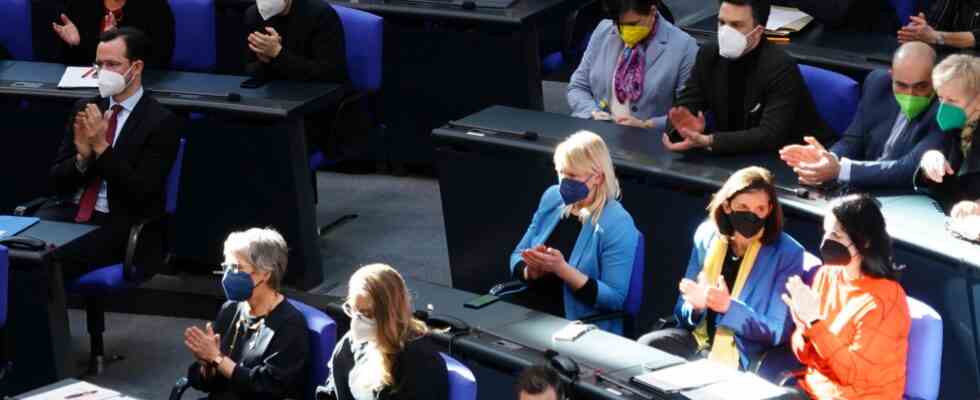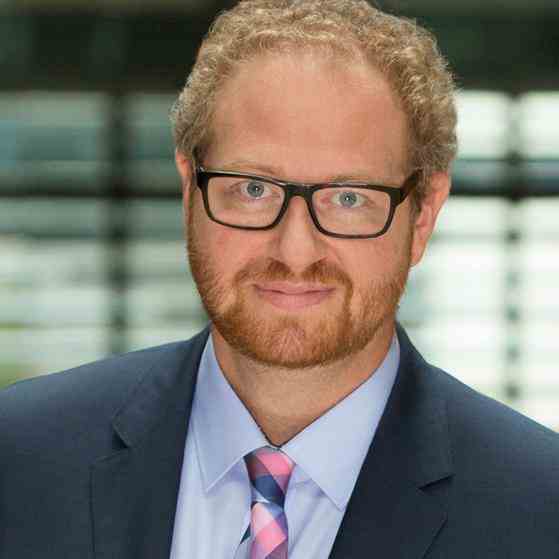analysis
Status: 03/03/2022 11:11 a.m
100 billion euros for defense, arms deliveries to Ukraine – the Greens are suddenly supporting positions that they would have torn apart earlier. What does that say about the party?
It is 11.25 a.m. on Sunday when the Greens finally realize that their second participation in a federal government will also involve painful, realpolitik decisions. Government statement by Olaf Scholz. The Chancellor’s voice sounds firm and resolute: There should be a special fund for the Bundeswehr. 100 billion euros. Scholz announces that he will invest more than two percent of gross domestic product in our defense every year from now on. In doing so, he takes up the controversial NATO goal, which is not mentioned at all in the traffic light coalition agreement.
The Green Party’s response to this shows just how much the party has changed in the decades since it was founded. The peace movement was a key root. The red-green participation in the NATO air raids in Kosovo in 1999 presented the party with a tough test. Since then, the Greens have discussed and clarified many positions. An example: Just recently, a motion to procure armed drones under certain conditions received a majority – albeit a narrow one.
questioning faces
So now 100 billion euros for the Bundeswehr. The Scholz message – formulated with this clarity – was a signal primarily to NATO partners. And how does the traffic light coalition react? On Sunday in the plenary session, one could see MPs turning around in the ranks of the Green parliamentary group. The masks could only cover the questioning faces with difficulty. It was the surprise of a decision that very few people knew about until that point. So far, however, there has been no loud protest from the Greens.
If you ask around in the party in the days that follow, it becomes clear: More money for defense: That doesn’t trigger an outcry – neither in Realo nor on the left wing of the party and parliamentary group. But the “but” has long been formulated: an increase in the defense budget must be linked to the additional money being used sensibly.
“Don’t seep away”
“Further funds for the Bundeswehr must not simply seep away again,” says Sven-Christian Kindler, budget spokesman for the Greens parliamentary group ARD Capital Studio. “The budget has increased massively in the grand coalition and is now 50 billion a year. Nevertheless, the Bundeswehr soldiers in Lithuania are freezing because they don’t have thick jackets and warm underwear.”
He wonders what has happened to all the additional billions in recent years. The parliamentary group leader of the Greens Katharina Dröge is also pushing for fundamental changes: “We need a structural reform in procurement so that the money is used sensibly.”
Investing in security means more to the Greens than just buying guns. If Germany wants to take on more responsibility in the world, then this also means increasing funds for development policy, humanitarian aid, civil crisis prevention and diplomacy. “According to the coalition agreement, all of this is linked to an increase in the defense budget,” says Kindler.
Concern about funds for the energy transition
There is great concern among the Greens that the 100 billion euro special fund for the Bundeswehr could mean less money being available for the energy transition. For the party, the Russian aggression is an urgent wake-up call to phase out fossil fuels as soon as possible.
“Right now, however, security policy is also energy policy. We must expand renewables as quickly as possible in order to become independent of autocracies,” demands the spokeswoman for the Green Youth, Sarah-Lee Heinrich. Does everyone at the traffic light see it that way? An influential voice in the parliamentary group says: “I am concerned that the will of the traffic light partners to make the investments that are now necessary, despite the acute crisis, is obviously not sufficient to enable a national effort here.”
Hardly any protest
A lot more money must be made available in the budget for this, demands Kindler, adding: “Ultimately, Parliament decides on the budget.” Another fundamental decision by the federal government hardly causes any noticeable excitement among the Greens. Foreign Minister Annalena Baerbock had long rejected direct arms deliveries from Germany to Ukraine.
At the weekend, the federal government announced a new course: weapons for self-defense will be delivered. There is no significant resistance to this in the Green parliamentary group. Even at a switching conference with the federal states, according to reports, there were no protests recently. Some of the Greens point out that this topic may cause much greater discomfort for the traffic light partner SPD.
who knew what
The question remains: who knew what and when? Who knew the exact dimensions of the special fund? Scenarios are making the rounds in government districts and the media. Haven’t the Federal Chancellor and Minister of Finance fully informed the Green Vice Chancellor and the Foreign Minister? That would not be a fine move within the coalition.
Were the green cabinet members in the know and didn’t pass the information on to their own party and faction? Six people could provide clarity: Baerbock and Robert Habeck, the leaders of the parliamentary group and the two new party leaders. However, they have decided that they want to remain silent about internal communications.


